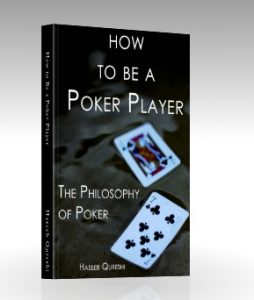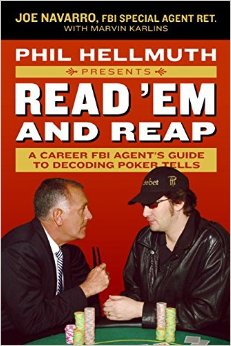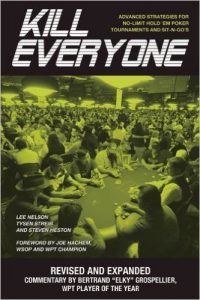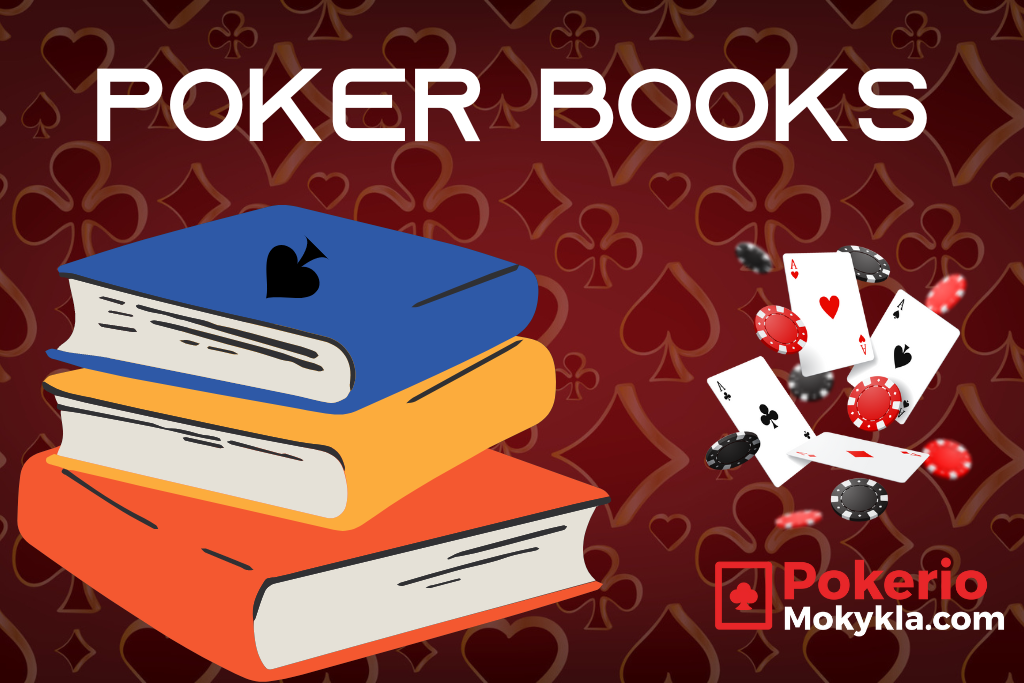
Best Psychological/Philosophical Poker Books
Poker is a game of information that changes very quickly; what was effective a year ago may no longer be as profitable.
Therefore, all technical poker books have a certain “expiration date,” but psychological and philosophical books practically do not have one or it is very long.
We start our review with this style of books for a reason.
These are books that do not explain how to play specific hands but show how to think or how to develop your psychology to play poker better. So let's start with the first place:
1. Treat your poker like a business 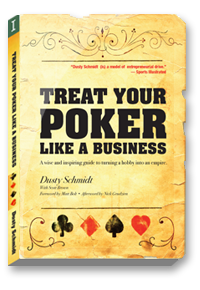
This is probably the easiest-to-read poker psychology book, written in a very light style, and the book can be read in one evening.
However, despite its lightness, the book is really good; the author touches on all the main aspects of a poker player's life.
This includes money management, time planning, relationships with a partner and other family members, nutrition, attitude towards work, taxes, auxiliary programs, and many other aspects.
A book that is perfect for anyone, even those minimally interested in poker.
Where is the best place to play poker?
2. How to be a poker player
A book that takes poker understanding to another level, completely different. While reading it, you need to think a lot and consider how to apply it to your game.
The book reveals many thinking errors or misunderstood concepts.
This is not a book you can read in one evening; you need to digest each chapter well, then take it to the tables or PokerTracker 4 program and try to implement everything, and only then is it worth moving on to the next chapter.
It is a philosophical but very strong book that will not tell you how to play specific hands in specific situations.
However, it will form a much broader perspective on poker itself, game dynamics, meta games, and this can be successfully integrated into your game.
This is the second book we recommend reading after “Treat your poker like a business,” regardless of the game you play or the limits.
3. The mental game of poker 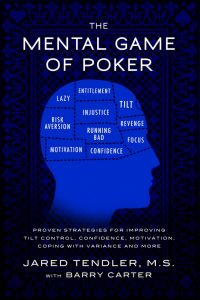
These series of books are real “bombs,” but again, they are workbooks, a bit of theory and a lot of exercises that you have to do constantly.
Both books are aimed at forming your psychological strategy.
The first book by this author is aimed at working on your bad side and bad game, how to make fewer mistakes, what is tilt? How to understand it? Manage it?
In general, how to work on your psychology to achieve good results.
So, if you feel you have problems with fatigue, tilting, motivation, and similar things, this book is just for you.
4. The mental game of poker 2 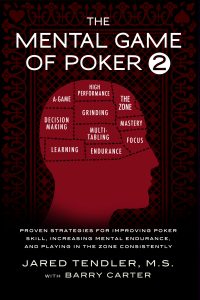
The second book is aimed at improving your best game, how to play your A-game as long as possible?
How to be in the zone? How to learn? How to develop your attention, discipline, motivation, etc.
The book, like the first one, is full of exercises, tips, and specific tasks on how to improve your game.
Our recommendation to everyone who wants to take poker professionally is to get this book.
5. Zen and the art of poker 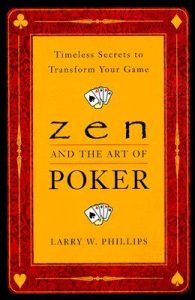
Another interesting poker philosophy book. It is intended for those players who simply find it difficult to concentrate, difficult to maintain discipline, who want to play significantly too many hands and cannot help themselves.
We recommend this book to everyone who wants to play poker but feels that it does not suit their too sharp or fast character; it will help you be much calmer at the table.
The author also presents his view on things like the laws of balance at the poker table, barely noticeable body signals, and similar subtle things that are intertwined with Eastern philosophy here.
Books about live poker (body language)
We will start again with psychological books specifically for live play, which do not have such a short expiration date, and later we will try to review some strategic books and what can be used in our days.
1. Read ‘Em and Reap: A Career FBI Agent's Guide to Decoding Poker Tells – Joe Navarro
This is the most highly regarded poker book specifically about body language.
Its author, Joe Navarro, is a former FBI agent whose specialization was body language.
Joe used to teach other agents and used it himself in everyday work, involving poker players in the company. He adapts his experience to poker.
Do you know which part of the body a person controls the least? So it signals everything most reliably. You will be surprised – it's the foot!
The book is full of good explanations and real examples from both life and poker.
Body language is often somewhat overrated in live poker. Technical understanding of the game and mathematics are much more important.
However, this is a great book for those interested in body language or those who want to elevate their game to a higher level.
2. Verbal poker tells
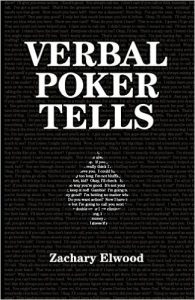
Like the previously mentioned book, this one is dedicated to live poker games and body language, but specifically to what people say and how they say it.
Players have no idea how much information they reveal when they talk, even about things that seem completely insignificant to them.
Poker books: live poker (game strategies)
So, before starting to analyze such books, it should be mentioned that the vast majority of books are quite outdated. Some live game books describe examples from 5-card draw and 7-card stud games, which practically no one plays anymore.
These days, both online poker and live poker change so quickly, especially the game among good players, that books simply can't keep up with the changes.
The internet is flooded with “one win” books, where a player wins a big tournament and decides to “profit” or “share their experience,” even though in the coming years they lose more than they won in that tournament.
So, before reading books, be sure to familiarize yourself with the author and their achievements and game history.
1. Every Hand Revealed – Gus Hansen
It's hard to believe, but the author of this book, a Danish poker pro, is probably the player who has lost the most money in cash games. He reached his biggest loss playing high-stakes Pot Limit Omaha games, and in 2014 he was close to the -20 MILLION mark.
However, despite his huge losses in high-stakes cash games, he has one of the highest ratings in live poker tournaments and has won more than 10 million USD in them.
So, now about the book. In it, he describes his winning tournament, detailing all the hands he played, what he had, what he thought, who he played against, etc. In short, he completely reveals his thought process.
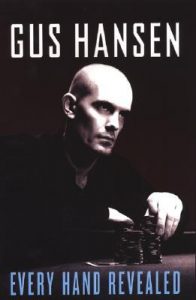
What makes this book good? It can show a poker novice how a professional thinks and that he is also human, that most decisions are simple and do not resemble movie scenes, giving more self-confidence.
It also clearly shows how his game and approach change during different stages of the tournament, different table dynamics, and different opponents.
Professionals will find nothing new in the book, but for a novice, it's a great opportunity to see the whole process from the inside, although it should not be taken at face value.
2. The Raisers Edge – Bertrand “ElkY” Grospellier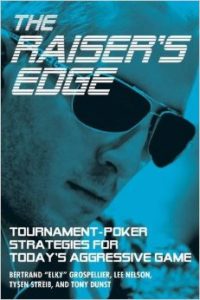 .
.
Bertrand “ElkY” Grospellier's tournament history is very similar to the previously mentioned Gus Hansen's story. The biggest wins were during the poker boom around 2007-2012, and then he gradually started to decline.
So, both books were also written during their “golden years.”
However, this book has many good insights. There is a section dedicated to body language, but it is quite weak, and it is better to get the above-mentioned book by the FBI agent, which is specifically about body language.
We recommend this book to those interested in deeper structured live tournaments.
3. Kill Everyone: Advanced Strategies for No-Limit Hold ‘Em Poker, Tournaments, and Sit-n-Gos
This is already a classic poker book that probably every MTT player of those years has read.
First, a little about the authors: the main author of this book is Lee Nelson, a New Zealand poker pro, but he himself has not participated in poker games since 2012.
He delved more into spiritual searches and meditations. The book was published in 2009, during the peak of the poker boom, edited and supplemented by the same “Elky.”
This book helps to understand the importance of aggressive poker, the nuances of ICM play, fold equity, and certain nuances of late game stages.
We believe that this book, unlike “The Raisers Edge,” is more suitable for medium-speed and medium-structured tournaments.
4. Tournament poker: 101 Winning moves – Mitchell Cogert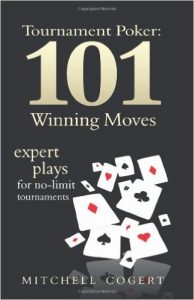
This is an even earlier published poker book, from 2008. It does not have deep analyses and calculations.
It simply describes many possible play variants. For example: you can open pre-flop with 3x, 4x, 5x, you can just shove all-in or limp.
At first glance, it seems like nothing new, but the book greatly structures poker knowledge.
It shows a novice that there is not just one option, that after the flop we can make a continuation bet (examples are given when and why), and we can also skip it and make a delayed continuation bet on the turn (again, examples are given).
Or we can skip the continuation bet and instead make a check-raise or just check-call.
Although some of its information is outdated (like sizings, short stack play, etc.), it still greatly broadens the horizon and is suitable reading for a novice.
Poker books: MTT (multi-table tournaments online)
1. Kill Everyone: Advanced Strategies for No-Limit Hold ‘Em Poker, Tournaments, and Sit-n-Gos
As mentioned earlier, the book explains various game elements quite well, such as:
- fold equity;
The book is more recommended for tournament newcomers and beginners. The book is intended for MTT players.
2. Endgame Poker Strategy: The ICM Book
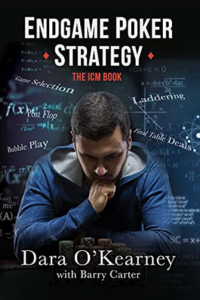
Dara O'Kearney's book “Endgame Poker Strategy” is a book on mastering the ICM in poker tournaments.
The book explains how ICM affects your decisions in the late stages of tournaments, such as when to play aggressively and when to play cautiously.
It also covers topics such as final table negotiations, choosing optimal play, and strategies for playing with different stack sizes.
O'Kearney, a professional poker player, shares his insights and tips to help players improve their tournament results and avoid costly mistakes.
Poker Books: Mathematics
1. Roy Rounder – Poker Math Made Easy 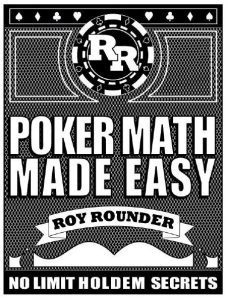
This is a great book for a beginner, everything is explained very simply, easy to understand, probabilities, outs, pot odds, equity, etc.
The most important thing is that this book shows that you don't have to be a math genius to play poker, everything is really simple.
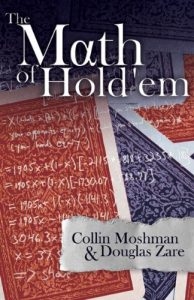
2. The Math of Hold'em – Collin Moshman
I would say this is an intermediate option, between “math for dummies” and “poker math scientists”.
This book covers many more concepts than the first one, but also includes the basics.
The book is written in a language understandable to the average person, so anyone who puts in a little more effort can read it.
This book is fully sufficient to understand all the necessary poker math and feel comfortable in practically any situation.
3. The Mathematics of Poker: Bill Chen, Jerrod Ankenman 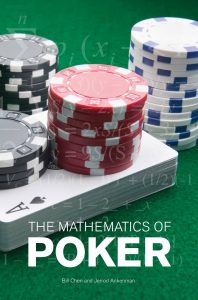
Very, very few poker players have read this book. Complex and deep calculations, functions, integrals, and all other fun stuff.
Unlike the book mentioned above, even simple things are explained in a complicated way here.
However, for those who like the language of mathematics, this is a great book to master poker math in detail, but I definitely do not recommend it for amateurs.




